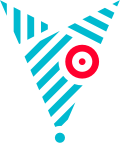During the second half of 2014 and the first half of 2015 we worked on a project codenamed KUMA. We helped KLM Business Campus understand and explore the potential of game-based learning for the purposes of recruiting and training KLM Care Team volunteers. Care Team supports victims and their next of kin in the case of an incident.
The central question explored in this project was if and how games could help potential volunteers understand what the work of a Care Team member entails and why they should consider signing up.
In this project we created a brief, a concept portfolio and a production plan. Subsequently, we created storyboards and mockups for one game concept selected from the portfolio. Our efforts helped KLM Business Campus make informed decisions about how to best make game-based learning a part of their broad range of learning technology innovation initiatives.
Workshops
Our approach was highly collaborative. We were not just concerned with creating high quality deliverables but also with maximising knowledge transfer from us to the KLM Business Campus team. To this end we organised a number of workshops at our Utrecht studio. Each workshop had a specific focus, ranging from understanding applied game design fundamentals, through generating game ideas, all the way to planning a game development roadmap.
The workshops were lead by our principals but we brought in help from our associate Sebastian Deterding and from illustrator Agnes Loonstra. Sebastian’s deep expertise in game-based learning proved invaluable as he he critiqued our deliverables and provided valuable input. Agnes joined us for the workshops to rapidly visualise game ideas as they emerged.



Mockups
After completing the workshops and delivering the brief, concept portfolio and production plan we went on to select one concept and develop its design further through storyboards and mockups. We invited artist Tim Hengeveld to join us for this effort.
We outlined the story we wanted to be able to tell using the mockups, storyboarded it and finally produced highly detailed screens. In parallel we wrote the copy to be used in the screens. At every step we spent time with KLM Business Campus to review and refine the work at hand.

A player is invited to experience what it is like to work as a Care Team member.

The player must observe the living situation of a customer closely to provide them with the right support.

The satisfaction of Care Team work is derived from really being able to help people. We wanted to get this across in the game.
The outcomes of the workshops and the visualised game concept together hugely increased KLM Business Campus’s understanding of game-based learning. After working with us, they were able to confidently make important decisions about the mix of learning technologies they would employ for the training of KLM Care Team going forward. And they had acquired skills and knowledge enabling them to start developing game-based learning solutions in-house.


Project KUMA – a learning and recruitment game for KLM Care Team volunteers
During the second half of 2014 and the first half of 2015 we worked on a project codenamed KUMA. We helped KLM Business Campus understand and explore the potential of game-based learning for the purposes of recruiting and training KLM Care Team volunteers. Care Team supports victims and their next of kin in the case of an incident.
The central question explored in this project was if and how games could help potential volunteers understand what the work of a Care Team member entails and why they should consider signing up.
In this project we created a brief, a concept portfolio and a production plan. Subsequently, we created storyboards and mockups for one game concept selected from the portfolio. Our efforts helped KLM Business Campus make informed decisions about how to best make game-based learning a part of their broad range of learning technology innovation initiatives.
Workshops
Our approach was highly collaborative. We were not just concerned with creating high quality deliverables but also with maximising knowledge transfer from us to the KLM Business Campus team. To this end we organised a number of workshops at our Utrecht studio. Each workshop had a specific focus, ranging from understanding applied game design fundamentals, through generating game ideas, all the way to planning a game development roadmap.
The workshops were lead by our principals but we brought in help from our associate Sebastian Deterding and from illustrator Agnes Loonstra. Sebastian’s deep expertise in game-based learning proved invaluable as he he critiqued our deliverables and provided valuable input. Agnes joined us for the workshops to rapidly visualise game ideas as they emerged.
Mockups
After completing the workshops and delivering the brief, concept portfolio and production plan we went on to select one concept and develop its design further through storyboards and mockups. We invited artist Tim Hengeveld to join us for this effort.
We outlined the story we wanted to be able to tell using the mockups, storyboarded it and finally produced highly detailed screens. In parallel we wrote the copy to be used in the screens. At every step we spent time with KLM Business Campus to review and refine the work at hand.
A player is invited to experience what it is like to work as a Care Team member.
The player must observe the living situation of a customer closely to provide them with the right support.
The satisfaction of Care Team work is derived from really being able to help people. We wanted to get this across in the game.
The outcomes of the workshops and the visualised game concept together hugely increased KLM Business Campus’s understanding of game-based learning. After working with us, they were able to confidently make important decisions about the mix of learning technologies they would employ for the training of KLM Care Team going forward. And they had acquired skills and knowledge enabling them to start developing game-based learning solutions in-house.